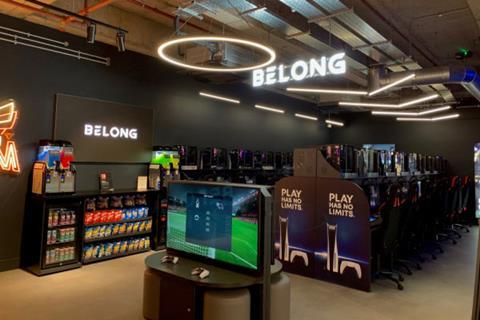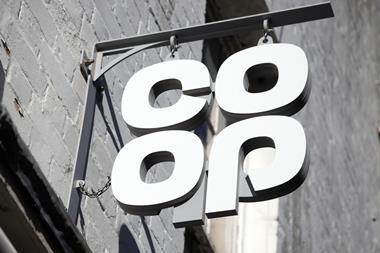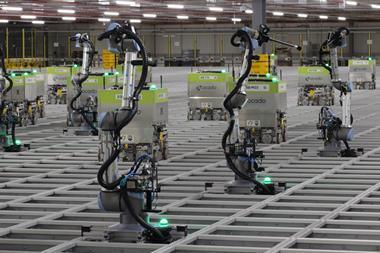PROMOTIONAL RESEARCH
Brands and retailers, including The Co-op, Frasers Group and Kingfisher, will be sharing their digital investment priorities at Retail Week’s Digital Summit on Wednesday 7 February 2024. Here we take a peek at three influential trends blowing up in 2024.
1. Retail media boom
This year is set to see a boom for retail media networks, as retailers across the board continue to invest in this innovative platform.
From in-store digital signage to ad space on websites and apps, retailers are leveraging their pre-existing channels and formats as new advertising platforms for third-party brands. And since it is high margin and not reliant on soon-to-disappear third party cookies, retail media offers an effective and reliable alternative revenue stream.
While predominantly popular among the grocers, more widespread adoption among other sectors has begun to take hold with both B&Q and Currys announcing the launch of retail media platforms in December 2023.
Meanwhile, convenience retailer The Co-op has been utilising its 2,500 store estate, e-commerce platform and quick commerce partnerships to facilitate touchpoints for its retail media offering.
This month, The Co-op revealed it had worked with over 177 brands to deliver over 1,500 campaigns via its retail media network last year. The retailer quotes that over the last five years, Co-op has seen brands more than double their investment levels in its retail media proposition, re-iterating the value of this high-growth area for retailers.
Dean Harris, Co-op head of membership commercial, believes that demand for retail media is only going to grow – but will become more nuanced.
He says: “There will be shifts towards making the word ‘network’ in ‘retail media network’ more true and more meaningful. Brands and retailers will need to collaborate better, improving transparency, bringing down silos on both sides and improving efficiencies.”
Harris notes: “Channels will need to be more fluid and integrated, focusing on the complete shopper experience vs the current disjointed digital & physical media planning. This will drive in-store media investment into technology and more data partnerships.”
2. Store revitalisation
Be it shoppers using their mobile while instore to look up product information, reviews or compare prices; or engaging with instore tech, from self-checkouts to smart fitting rooms – consumers are becoming ever more comfortable with technology as part of their everyday instore shopping experience.
In 2023, several retailers and brands opened stores that put digital at their core. One standout is the flagship EE Studio store, which opened in Westfield Stratford City in June. Fitted out with a gaming hub, smart home zone and ‘digital spa’, it is shortlisted for the Retail Week Awards 2024 in the Best New Store category.
Sports Direct’s Manchester flagship, which opened in March 2023, became the sportwear retailer’s most digitally advanced store yet. Following a “multimillion-pound investment”, the new format features curated activation spaces and interactive experiences for consumers to explore.

These include a Jordan basketball performance challenge, mini-golf putting green, Subsoccer table football and Xbox station, as well as a Belong esports arena and game store. Digital touch points litter the store, allowing shoppers to learn more about instore ranges.
Pureplay retailers have taken to ‘phygital’ (combined digital and physical) spaces too, with eBay, LookFantastic and Depop opening digital-focused pop-ups over the 2023 Christmas period.
Asos hosted a pop-up shop in November to coincide with the Black Friday weekend – the retailer’s first foray into physical retail – in collaboration with Snapchat. Users of the social media app were able to scan codes to see digital avatars of themselves wearing a range of Asos apparel that they could then purchase instore or online.
Meanwhile, TikTok’s pop-up, hosted in July, took a more unique approach. Rather than visiting the shop in real life, customers engaged with livestreams hosted by the merchants and creators at the Oxford Street store and then purchased items online. The main aim of the pop-up was to enable merchants and creators to meet experts and better learn about social selling.
Retailers must engage customers across an increasing number of touchpoints to stay top of mind, and instore digital revitalisation is set to form a critical piece of this puzzle moving forward.
3. Strategic AI investments
2023 was the year retail experimented with AI.
From AI-driven personalised scents at the Fragrance Shop’s Oxford Street flagship and text-to-artwork clothing design tools at H&M’s Creator Studio to The Very Group’s AI-powered chatbots and virtual try-on at Mac Cosmetics, John Lewis and more, impactful CX driven by AI was a big focus.
While these use cases will still be prioritised by many brands, this year we expect to see more retailers continuing to invest in behind-the-scenes tech that improves efficiencies, streamlines processes and automates monotonous and repetitive tasks.
“The strategic use of AI and other digital technologies is essential for meeting evolving consumer demands and staying competitive,” says Rahul Arora, EXL senior vice president – head of emerging business unit UK and Europe.
He added: “However, strategic – rather than impulsive – implementation is crucial, and retailers should focus on achievable, incremental improvements in their digital strategy over the coming year. This could involve identifying right-use cases: by targeting smaller, manageable projects, retailers can gradually build a robust infrastructure without overwhelming resources or facing significant setbacks.”
As we’ve seen at retailers such as The Very Group, which continues its transformation to become a world-class digital retailer through significant investment in data analytics, data management is crucial for getting AI right.
Arora agrees and advises that retailers “must consider data quality, the need for human oversight to avoid bias and manage complex customer interactions, and the implications of AI-driven decisions.
“A balanced approach with a strategic and discerning mindset, focusing on both immediate improvements and long-term strategic goals, always with an eye on the tangible ROI and the overall customer experience, has the capacity to significantly propel the retail sector forward in 2024,” he says.


























No comments yet